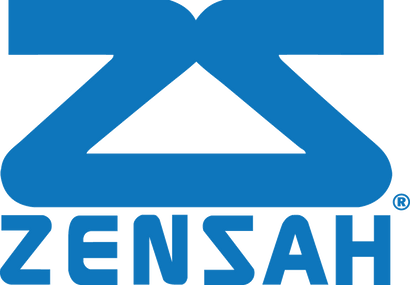Your Cart is Empty
🌟 Free standard domestic shipping with orders over $70! 🌟
Menu

🌟 Free standard domestic shipping with orders over $70! 🌟
Limited Edition
Basic Nutrition Information for Athletes
August 13, 2012 4 min read
Jaws dropped when Michael Phelps, decorated Olympic athlete, recently revealed that his training diet consisted of consuming 12,000 plus calories a day. On average, most people would eat that many calories worth in about three to four days! We may not all be Olympic athletes, but in order to be a successful one, it’s a must to maintain good health and shape. If you want to swim (or run, dunk, play, etc.) your way to a gold medal you don’t have to follow Phelp’s training diet (phew!). Below is a guide on nutrition information for athletes. Happy eating!
Fruits and Vegetables
Remember how your parents always told you to eat your fruits and veggies when you were a kid? Your parents had your best interest in mind while making you eat these colorful and healthy foods. Fruits and vegetables are amazing for the body because they help to keep it healthy and strong. They provide a variety of vitamins, minerals and other nutrients to keep you in tip top shape.
One type of fruit and vegetable to definitely include in your diet is citrus. Vitamin C will give you energy and strengthen your immune system at the same time. Examples of citrus foods are oranges, lemons, and broccoli.
Carbohydrates
Many endurance athletes will consume lots of carb-rich whole foods. This practice is called carbo-loading. Carbs give you the energy you need for a workout. Our bodies were made to burn carbs! There are two types out there that you need to know about.
Simple
Simple carbohydrates should be avoided. They don’t keep you feeling energized. So you’ll feel tired and hungry faster. You can find this type of carb in foods such as candy, soda, and pudding.
Complex
This is the type of carbs you want to eat! They will give you the ability to feel energized for a longer period of time and will keep you full. Look for this type of carbs in brown rice, oatmeal, potatoes (not French fries!), and whole grain cereal.
Fats
cereal.
Fats
The word “fat” usually scares people away, but when eaten correctly, it will give you energy for exercise. In order to consume the essential fats, you must first understand the difference between the types of fats out there: Trans, Saturated, Polyunsaturated, and Monosaturated.
Trans
Trans fats are commonly found in food from animals, frozen dinners, snack foods, and fried foods. Everyone (and not just athletes) should avoid these types of fats! They not only raise LDL (“bad” cholesterol), but they also lower HDL (“good” cholesterol). Run as fast as you can away from these fats!
Saturated
These are also bad fats! You want to stay away from these in order to keep up with your fitness training. Saturated fats are more likely to turn into fat cells because they are harder to digest. These fats will also clog your arteries by raising your LDL “bad cholesterol.” Eating too much of this fat might lead to an increase in risk of a heart attack. You’ll find these fats in meats, fatty snacks, deep fried foods, and dairy products.
Polyunsaturated
There are two types of polyunsaturated fats: Omega-3 and Omega-6. You’ll find this fat in fish and plant-based foods and oils. Eating this type of fat provides proper nutrition for athletes. Many doctors recommend this fat because evidence has shown that they reduce cholesterol levels.
Monosaturated
This type of fat has also shown to improve cholesterol levels and help control blood sugar. You can find this type of fat in a variety of foods and vegetable oils.
The bottom line is your body stands to benefit from eating mono- and polyunsaturated fats. However, beware that although they are healthy, these foods are high in calories so you might put on weight.
Note: Trans and Saturated fats are solid in room temperature while Polyunsaturated and Monosaturated fats are liquid at room temperature.
Protein
Proteins are very important for building muscle and maintaining them. They are the building blocks for your muscles after all. Besides repairing and building muscles, proteins help transport nutrients and take care of your immune system. You can eat grains, vegetables, nuts, fish, and lean meat to get your intake of protein.
Supplements
Besides using proteins to build muscles, there are workout supplements out there that claim to do the same if not better, than eating “normal” proteins. These shakes, bars, and powders such as GU Energy Gel maintain blood glucose levels, delays physical and mental fatigue, prevents muscle damage, and aids in recovery.
Beware of how much protein you consume. Too much protein can cause nutritional deficiency problems.
Water
Water is very important for the metabolic process in your body. As an athlete you’ll want to avoid feeling dehydrated. This will have you feeling sluggish, slow, and hinder recovery time. Drink about a liter of water per each hour you workout. Carry around a water bottle during your training session.
To lessen the amount of things you carry, try a fuel belt or pocket to carry your water and your other items (keys, wallet, gym card, etc.)
Eating right while working out is essential for good health. Often times, many people forget about the nutrition aspect of training and focus solely on the physical. Don’t forget that what you’re putting into your body is just as important as to what you’re doing with it. Zensah athletes, do you have any “must have” foods that help before, during or after working out? Let us know below!
Leave a comment
Comments will be approved before showing up.








